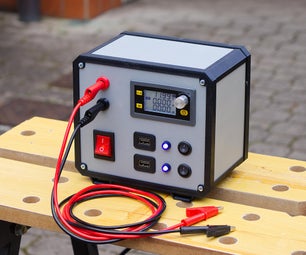Introduction: USB Power From Hirose
The purpose of the box is to be able to charge/power small audio recorders such as the M-Audio MicroTrack II used for transcription in ENG bags using NP-type batteries and all HIROSE 4-pin compatible connectors. We envision being used with ENG Power distribution systems such as the Remote Audio BDS system, Hawk Woods, or Battery Bud. All parts are readily available from the Internet ( see the parts list on schematics), and can be ordered as a kit or assembled from Gotham Sound and Communications.
Step 1: It Begins With a Pigtail
This is a pigtail USB A jack, equivalent of the panel or PCB mount computer jack. We used this one because of easy hook-up/installation, but you can use any compatible product.
On the picture you can see the wires- ground wire (in black shrink tubing), red/ black and green/white. Red is positive (+),black is negative (-). Green and white- data wires, for some devices they will need to be soldered together, in order to switch the device in charging mode. Read more about USB standards on the web. All parts are listed on Schematic page.
Step 2: The Enclosure
The next thing was a enclosure choice, it's totally up to you. We decided to squeeze everything into the smallest box ( on the left), it's easier to work with the bigger one though...
Step 3: The Parts
Here is the complete parts collection. CW from the top: box, DC/DC converter, pigtail USB jack, HIROSE 4-pin panel mount connector, screws. You'll nee a couple more of hook-up wires- red and black color ( for polarity matching) and 20-22 gauge.
Step 4: The DC/DC
Close-up of the DC/DC converter. This one is from "Mouser", and takes 9-18V input. Part number is on schematics page. Observe two ceramic capacitors, wired across the input and output, they serve the purpose of extra filtering/reducing interference.
Step 5: Preparing the Case
This is how I did the cutout for USB mount. A mechanical part of the project is a little messy and needs some drilling, filing, measuring. The good part is - you are the one to arrange everything according to your needs/taste :-)
Step 6: All Wired Up!
That's it, install the cover, and you're ready to charge your gadgets!
The pin-out standard for Hirose - pin 1-Ground(negative-), pin 4-positive(+) After putting it together we decided to add optional reverse polarity protection (stuff happens...) and visual LED indicator forUSB output. Details are on the schematic.
Good luck with the project!
Step 7: The Schematic
Schematic and parts list.
Participated in the
Art of Sound Contest









